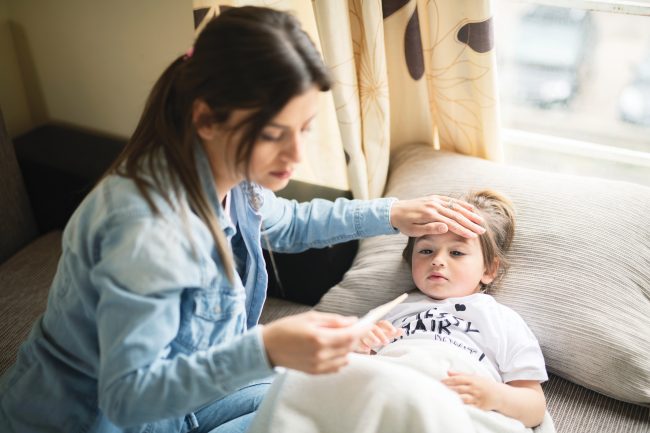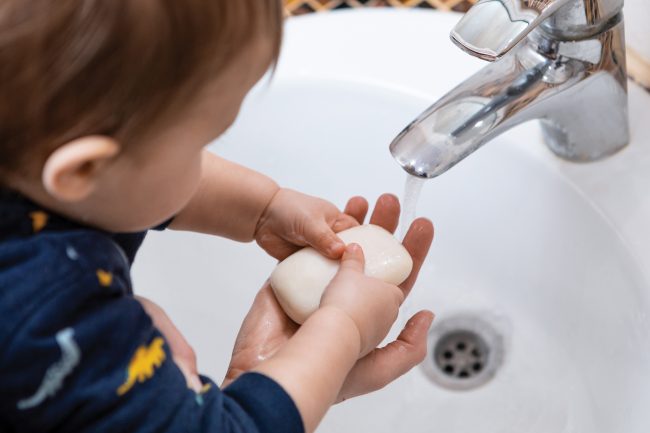When your child is sick—or when there’s news about a new virus—it’s easy to feel overwhelmed. But here’s the good news: You don’t have to figure it out alone. Understanding how viruses work and how vaccines help can make a big difference in keeping your child safe and healthy.

What Are Viruses?
Viruses are tiny germs that can make people sick. There are millions of viruses out there, but most don’t cause serious illness. Some, like the common cold, are mild. But others—like the flu, measles or COVID-19—can be more dangerous, especially for babies and young children.
Which Viruses Are Serious for Kids?
Even a simple cold can be risky for newborns. If your baby is under 3 months old and shows signs of being sick, call their doctor right away.
Other viruses, like the flu, whooping cough, chickenpox and measles, can lead to serious health problems. The good news is that many of these can be prevented with vaccines.
Tips to Stop the Spread of Viruses
Germs spread fast, especially in busy places like child care or school. Here’s what you can do to help protect your family and others:
- Wash hands with soap often—especially before eating or after blowing your nose
- Cover coughs and sneezes with your elbow or a tissue
- Clean surfaces like phones, toys and doorknobs
- Stay home when you or your child is sick
- Avoid sharing drinks, cups or utensils
- Stay up-to-date on routine vaccines

About Vaccines
Vaccines can reduce your worry about your family getting sick. They work by teaching your body how to fight off certain germs—before your child is ever exposed to them.
Most vaccines are given as shots, and many are needed before your child starts child care or school.
Why Get Vaccines
Babies and toddlers can’t fight off certain diseases on their own. That’s why vaccines are given early—to protect them when they’re most at risk. Vaccines help prevent:
- Measles
- Whooping cough
- Polio
- Chickenpox
- And other serious illnesses
Getting your child vaccinated doesn’t just protect them—it protects everyone around them, especially newborns or older adults who may get sicker from these diseases.
Where to Get Vaccines in Arizona
When your baby gets their first vaccines, your doctor or hospital will give you an immunization record. This is important to keep and update. You’ll need it when enrolling your child in child care or school.
You can get vaccines through:
- Your pediatrician’s office
- Community health clinics
- Local pharmacies or vaccine clinics
- Your county health department
If you don’t have insurance, many places offer vaccines for free or at low cost. Visit WhyImmunize.org to find a clinic near you.
More Ways to Find Help
- Arizona Department of Health Services — Get vaccine schedules and health updates
- Arizona MyIR — Access your child’s vaccine records online
- CDC: Vaccines for Your Children — Trusted national resource from the Centers for Disease Control

